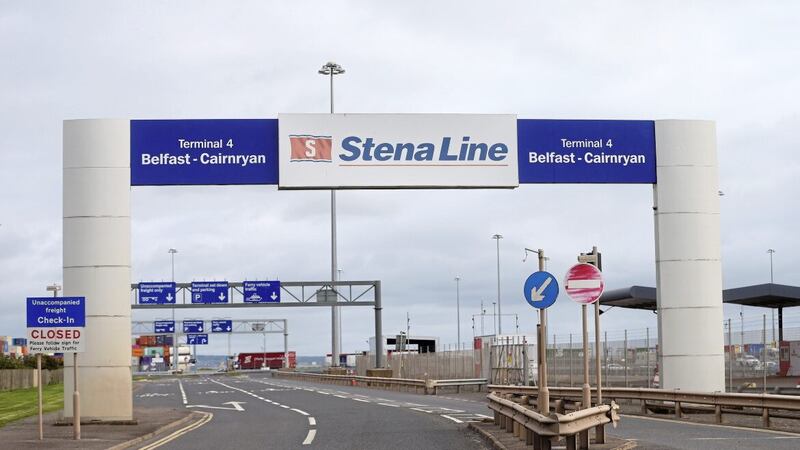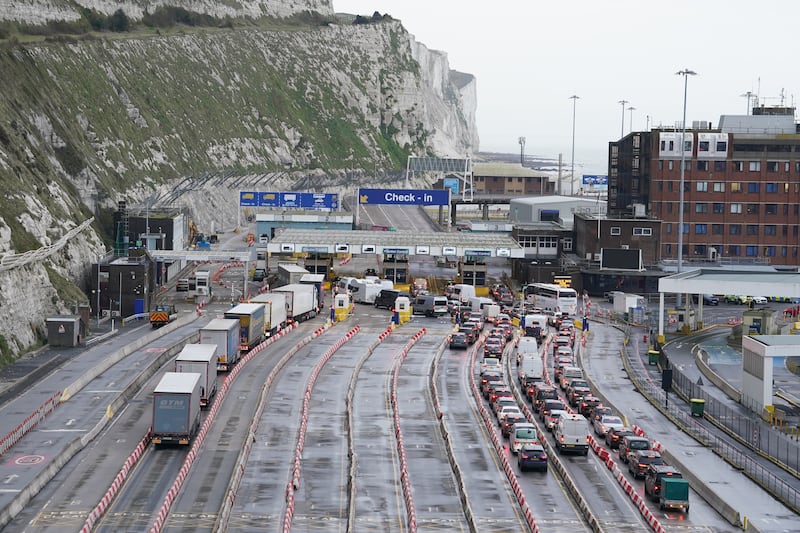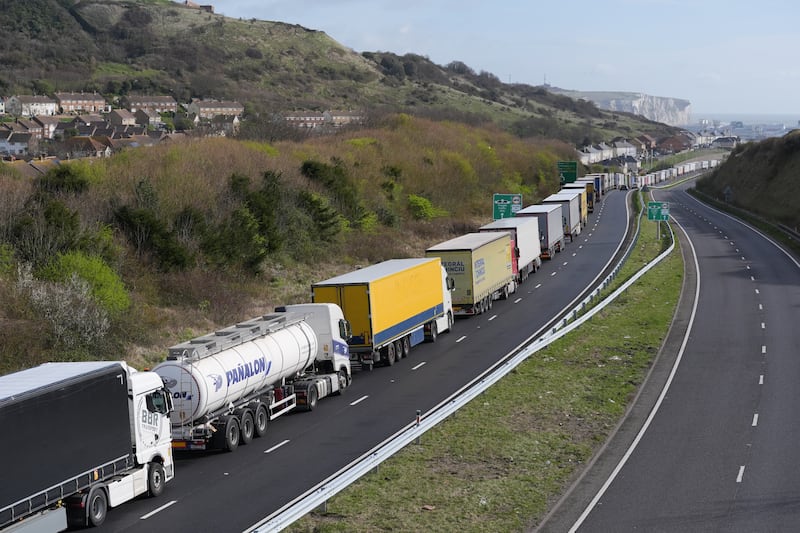The EU is moving ahead with the implementation of the Windsor Framework by putting in place new rules which it says will simplify trade between Britain and the north.
The three new regulations apply to public, animal and plant health issues, medicines and certain steel products.
The EU said the adoption of the new rules will make it considerably easier to move a range of goods from Britain into Northern Ireland if they are destined for final consumption in the region.
Mirroring the so-called green and red lanes, safeguards will also be put in place to prevent such goods from entering the EU’s single market and to ensure the protection of the bloc’s public, animal and plant health, as well as consumer rights.
The new sanitary and phytosanitary (SPS) rules governing agrifood, plants and pets mean previously prohibited chilled meat goods from Britain to be consumed in the north only can enter the region with minimal certification requirements and controls, once agreed safeguards have been put in place.
The safeguards include sanitary and phytosanitary inspection facilities at ports and ‘Not for EU’ labelling, which will be introduced gradually up to July 2025.
The movement of certain plants, based on a special plant health label, will become easier, as will the movement of agricultural machinery. The ban on seed potatoes will be removed.
Travelling with pets from Britain to Northern Ireland will require a simple pet travel document, a microchip, and a declaration by the owner that the pet will not travel to the EU.
Another set of new rules will ensure that all medicines, including novel medicines, will be available in Northern Ireland at the same time as in the rest of the UK.
The third new piece of legislation will make it possible to transfer certain categories of steel from Britain to Northern Ireland under the EU's tariff rate quotas.
Companies in the north will no longer need to pay the 25 per cent tariff linked to the EU safeguard measures currently in place for steel imports.
The three regulations were agreed between the European Council and the European Parliament through a fast-track procedure.
Jessika Roswall, Sweden's Minister for EU Affairs, said: “The EU is delivering on its promise to swiftly implement the agreed joint solutions, which respond to the everyday needs of people and businesses in Northern Ireland, for which the EU has always had understanding.
“It is important to continue work to make them fully operational, as well as to ensure the EU single market is protected.”
Alliance deputy leader Stephen Farry said the Windsor Framework was a "done deal" that represented a significant improvement upon the original protocol.

"Moves to implement the Windsor Framework are welcome," the North Down MP said.
"In terms of delivery, it is crucial that both the UK and EU engage with the business community and other stakeholders around points of detail and operational guidance."
SDLP MP Claire Hanna said the EU’s steps would have significant benefits for businesses in the north who regularly bring goods in from Britain, as well as addressing previous concerns around medicines and animal and plant health.
“This development should be treated as the positive it is by all political parties,” the South Belfast representative said.
“It is absolutely now time for all parties commit to making the most of the economic opportunities this presents us, starting with the formation of an excutive serious about making the economy and public services here work.”








